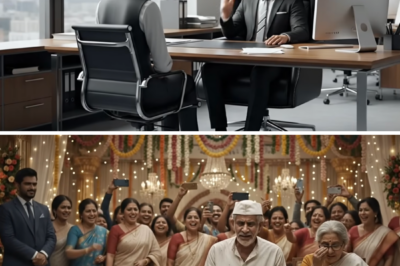Ground Voices on Rahul Gandhi, Modi, and Indian Politics: A Candid Perspective
In a candid conversation about the current landscape of Indian politics, a villager was asked for his views on Rahul Gandhi, Modi, and electoral reforms. His responses provide an authentic grassroots perspective that echoes the opinions of many voters in India’s heartland.
On Rahul Gandhi’s Political Relevance
When asked about Rahul Gandhi, the villager remarked on his surprising resilience: “No matter how many elections Rahul Gandhi loses, he still remains relevant in the politics. If anyone else faced so many defeats, even their own party would have sidelined them. If Modi ji lost just four times, people would immediately start questioning his leadership. But here, either people are used to seeing Rahul lose, or he has some unique persistence.”
He goes on to discuss changes in Rahul Gandhi’s approach: “Recently, he’s shown a lot of improvement, going on foot marches and addressing critical issues. He’s at least putting in effort.”
On Modi’s Performance as Prime Minister
When asked to evaluate Prime Minister Modi’s ten years, the villager praised infrastructure improvements, digitalization, defense progress, and foreign policy (with a critical note about China). “Modi ji has worked in many sectors, especially infrastructure, roads, railways, and digital India. No one improved these as much. But there’s still a gap. They ask us to go digital, but leaders still rely on helicopters for rallies. If everything is digital, why not elections?”
On Election Costs and Digital Democracy
The villager raised a strong point about the exorbitant costs of political rallies: “A single rally costs crores. Every MP spends at least ₹120 crores to win. How can we expect honesty in elections when only the richest survive? Instead, why not conduct digital elections? Every party can address people via online programs, saving a huge amount of money and reducing rigging.”
On ‘One Nation One Election’ Proposal
He expressed skepticism: “If elections happen only once every five years, politicians will pay attention to us only once. Regular elections force accountability. If there’s so much need to save money, reduce their bungalows and allowances instead.”
On Caste-Based Politics and Social Issues
When asked about the push for a caste census and its influence in politics, he explained pragmatically: “Leaders always use what benefits them—be it religion, caste, or language. Wherever it’s profitable, they’ll play that card. It’s just politics.”
He concluded with a historical reference, cautioning that identity politics—whether based on religion, caste, or language—has always been divisive and continues to be weaponized for political gain.
Conclusion
This raw, unfiltered village viewpoint spotlights both cynical realism and practical suggestions for making Indian democracy stronger—from advocating digital elections to ensuring politicians remain answerable to the public more often. It also warns of the risks of divisive politics and calls for more honesty and efficiency in the country’s democratic process.
News
The Enduring Love of Parag Tyagi: Actor Gets Wife Shefali Jariwala’s Face Tattooed on His Chest After Her Passing
The Enduring Love of Parag Tyagi: Actor Gets Wife Shefali Jariwala’s Face Tattooed on His Chest After Her Passing It…
था कि यही आदमी कभी जिले का डीएम था—आदित्य प्रताप सिंह।
शहर का डीएम और पानी पूरी वाला: इंसाफ की मिसाल सुबह का वक्त था। शहर की हल्की धूप में सड़क…
Unexpected Twist in Nimisha Priya Case in Yemen: Activist Accused of Financial Irregularities
Unexpected Twist in Nimisha Priya Case in Yemen: Activist Accused of Financial Irregularities Welcome to the digital platform of News…
मुंबई – सपनों और विषमताओं का संगम
ट्रैफिक सिग्नल की मुलाकात – कोमल और आर के चौहान की कहानी क्या होता है जब नियती दो ऐसे इंसानों…
औकात कपड़ों से नहीं, संस्कारों से बनती है
औकात कपड़ों से नहीं, संस्कारों से बनती है मुंबई की शाम सिंदूरी रोशनी में नहाई हुई थी। कांच और स्टील…
मां बाप को कंपनी से धक्के देकर बाहर फेंक दिया ! जब बेटे को पता चला। उसके बाद जो हुआ ?
औकात कपड़ों से नहीं, संस्कारों से बनती है मुंबई की शाम सिंदूरी रोशनी में नहाई हुई थी। कांच और स्टील…
End of content
No more pages to load


